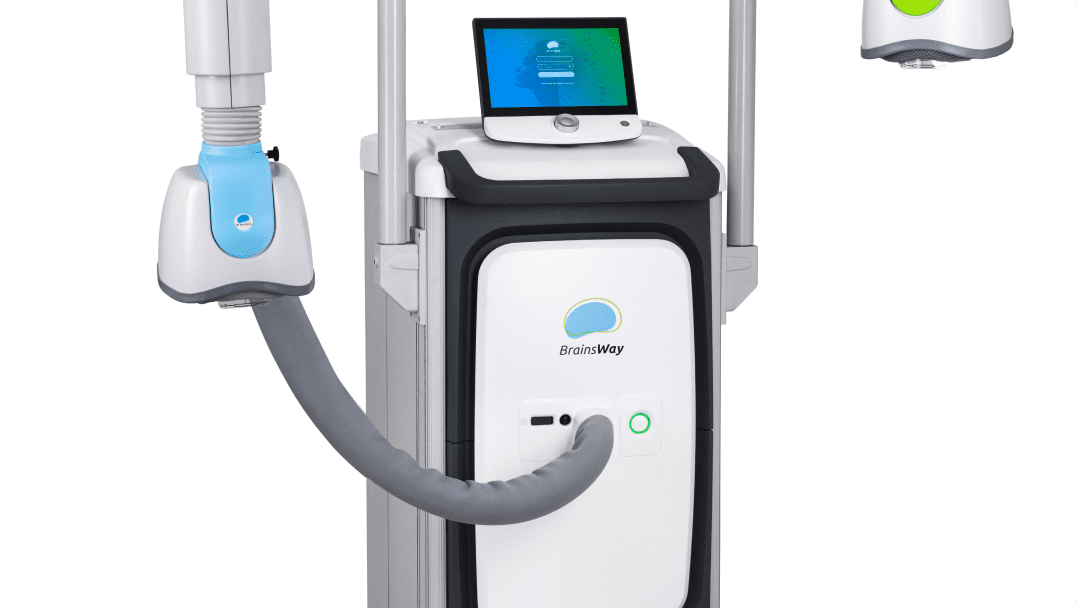- Jay Schiff
- 0 Comments
TMS stands for Transcranial Magnetic Stimulation. This is an FDA-approved form of treatment with no side effects. It is a non-invasive procedure that relies on magnetic pulses to stimulate deep regions of the brain. This article will critically examine the advantages and disadvantages of TMS therapy as a treatment option for various mental health conditions.
Pros of TMS Therapy
TMS therapy’s pros and cons are things that every individual has to consider when deciding whether or not transcranial magnetic stimulation is a viable treatment option.
Non-Invasive Procedure
During a TMS session, you can expect a non-invasive, fast, and efficient treatment. When you come to a treatment center, an electromagnetic coil is placed against the scalp. This technology delivers magnetic pulses painlessly to the nerve cells in the brain. This stimulation is directed toward the regions of the brain most heavily associated with symptoms.
Efficacy and Effectiveness
Transcranial magnetic stimulation (TMS) has been proven successful for the treatment of myriad conditions. This success is achieved by way of a targeted pulsed magnetic field. This field works similarly to MRI machines, but instead of taking a look at your body, the TMS procedure helps stimulate areas of the brain that underlie the symptoms of mental health conditions.
The FDA approved the use of deep TMS for several conditions because of the special coils used that stimulate greater depths of the brain in a safe, efficient way.

- Research has confirmed that there is a low risk associated with TMS for migraines.
- TMS can be used to successfully reduce chronic pain from fibromyalgia.
- TMS treatment with high-frequency stimulation targeting the primary motor cortex can manage pain from Complex regional pain syndrome or neuropathy.
- One study confirmed the effectiveness of TMS therapy for tinnitus with long-term benefits.
When looking at TMS pros and cons, possibly the biggest pro is the fact that transcranial magnetic stimulation can treat several conditions, including:
- OCD
- Depression
- Anxiety
- Borderline personality disorder
- Tinnitus
- Migraines
- Autism
- Neuropathy
- Fibromyalgia
- Chronic pain
Targeted Treatment
When you are ready to try TMS treatments, you can expect a qualified provider to work with you and any other members of your healthcare team to develop a comprehensive treatment plan.
A clinical coordinator will work with you during an initial consultation, during which time they will talk over what the procedures will be like and answer any questions you have. Understanding your physical or mental symptoms and health history is integral to determining the best possible treatment.
For example, research has found that the benefits of transcranial magnetic stimulation for autism can be enhanced when combined with other treatment options, so you might decide to make it part of a treatment or management plan instead of your only treatment.
Cons of TMS Therapy
Cost and Accessibility
Cost and accessibility tend to be the biggest hurdles to those who are looking for TMS therapy. The pros and cons of TMS have to do with the treatment duration and frequency. In almost all situations, TMS provides statistically significant relief from symptoms across many conditions, including mental health disorders and chronic pain disorders. However, not all insurance providers will cover the cost of treatment. Moreover, since treatment is typically required on a somewhat regular basis, insurance companies may not pay for it every year.
However, the need to pay for a few weeks of TMS treatment every year compared to the cost of therapy or regular medication is something that each individual needs to consider.
Accessibility can be another issue. There are many areas where individuals may not have access to a legitimate treatment center or have qualified professionals who can provide appropriate services.
Side Effects and Risks
There are very few side effects or risks associated with TMS therapy. When looking at the pros and cons of TMS therapy, the biggest risk is going to be minor headaches or discomfort for the first few sessions, but this tends to go away. There may be some potential complications for people who have specific conditions, like seizures, which is something that can be discussed during a consultation.
Treatment Duration and Frequency
In 2015, researchers conducted a meta-analysis, which analyzed hundreds of patient records, to determine the efficacy and treatment duration of TMS for things like fibromyalgia. The findings indicated that pain severity significantly decreased for people who struggled with fibromyalgia.
However, those same studies confirmed that TMS pros and cons also existed in that it wasn’t a long-term solution. Transcranial magnetic stimulation didn’t cure fibromyalgia, but it did provide significant relief from chronic pain almost immediately after the first few sessions and lasting several months or years in some cases.

Tangentially, research has confirmed that there is a low risk associated with TMS for migraines, but it is something that clients will need to use regularly for acute migraine treatment.
Several studies have confirmed that TMS treatment for autism is more efficient the longer an individual participates in treatment, which might mean that certain clients need more sessions than others.
Several studies have confirmed that those struggling with borderline personality disorder can also benefit from transcranial magnetic stimulation, but it doesn’t offer complete remission, and it is similarly something that needs to be used regularly, usually annually, which can cause issues with insurance coverage and accessibility, for some clients.
Summing Up
Overall, TMS therapy’s pros and cons are things that every individual has to look at. Pros center on the fact that TMS therapy is a non-invasive, FDA-approved treatment that has been successful in treating several mental health conditions, as evidenced by studies from the last two decades. Treatment can be customized to individual needs and doesn’t require any medication.
However, the pros and cons of TMS therapy also have some downsides in that individuals may not have TMS treatment available where they live, they may not be able to get coverage from their insurance, and it might be something that they have to do regularly. If you are considering TMS treatment, think carefully about the TMS pros and cons and consult with healthcare professionals.
